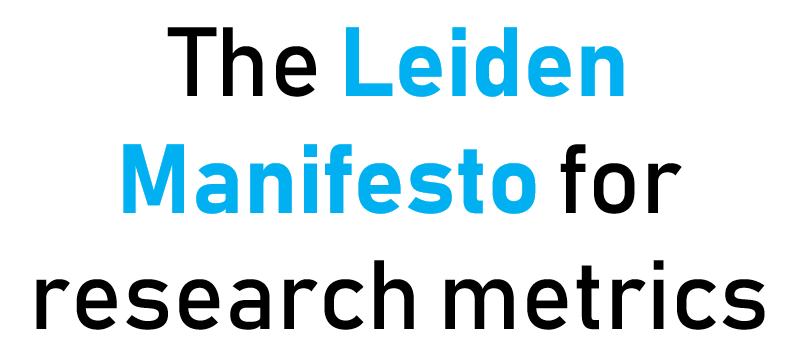Are temperament and kindergarten attendance related to social skills in the first years of life?
Temperament, daycare and social skills
DOI:
https://doi.org/10.24215/2422572Xe066Keywords:
Social Skills, Temperament, Daycare, InfancyAbstract
The objective of the following research was to evaluate the relationships between social skills, temperamental styles and attending kindergartens in the first years of life. The sample consisted of 102 primary caregivers of infants 18 to 48 months of age (M= 30.48 months; SD= 10.45). An ad-hoc questionnaire was administered, the Social Skills Scale adapted by Lacunza et al. (2009) and the Early Childhood Behavior Questionnaire (ECBQ-VSF; Rothbart et al., 2001). Associations were found between temperamental styles and social skills, but not with regard to daycare attendance. If it concludes that the individual differences of the infants would be contributing to their way of interrelating, and that they necessarily need to collect information regarding the quality of the material gardens for the variations found, since in this age range social behaviors are still very variable and volatile.
Downloads
Metrics
References
Aubone, N. S., Franco, P., Mustaca, A. E. (2016). Habilidades sociales en niños y su relación con el jardín maternal. ConCiencia EPG, 1(2), 57-71. https://doi.org/10.32654/concienciaepg.1-2.5
Aulicino, C., Gerenni, F., y Acuña, M. (2015). Primera infancia en Argentina: políticas a nivel nacional. Documento de Trabajo Nº143. CIPPEC Políticas Públicas.
Bárrig Jó, P., y Alarcón Parco, D. (2017). Temperamento y competencia social en niños y niñas preescolares de San Juan de Lurigancho: un estudio preliminar. Liberabit, 23(1), 75-88. https://doi.org/10.24265/liberabit.2017.v23n1.05
Berdan, L. E., Keane, S. P., y Calkins, S. D. (2008). Temperament and externalizing behavior: social preference and perceived acceptance as protective factors. Developmental Psychology, 44(4), 957-968. https://doi.org/10.1037/0012-1649.44.4.957
Berlinski, S., Galiani, S. y Gertler, P. (2009). The effect of pre-primary education on primary school performance. Journal of Public Economics, 93(1-2), 219-234. https://doi.org/10.1016/j.jpubeco.2008.09.002
Blanco, A. (1981). Evaluación de las habilidades sociales. En R. Fernández Ballesteros y J. A. Carrobles (Eds.), Evolución conductual: metodología y evaluación (pp. 568). Pirámide.
Britto, P. R., Lye, S. J., Proulx, K., Yousafzai, A. K., Matthews, S. G., Vaivada, T., ... y MacMillan, H. (2017). Nurturing care: promoting early childhood development. The Lancet, 389, 91-102. https://doi.org/10.1016/s0140-6736(16)31390-3
Broekhuizen, M. L., Mokrova, I. L., Burchinal, M. R., Garrett-Peters, P. T., & Family Life Project Key Investigators. (2016). Classroom quality at pre-kindergarten and kindergarten and children’s social skills and behavior problems. Early Childhood Research Quarterly, 36, 212-222. https://doi.org/10.1016/j.ecresq.2016.01.005
Calkins, S.D. (2005). El temperamento y su impacto en el desarrollo infantil: Comentarios sobre Rothbart, Kagan y Eisenberg. En R.E. Tremblay, M. Boivin y R. Peters (Eds.), Enciclopedia sobre el desarrollo de la primera infancia. Nueva York. Wiley. https://doi.org/10.35376/10324/10385
Carson, V., Lee, E. Y., Hesketh, K. D., Hunter, S., Kuzik, N., Predy, M., ... y Hinkley, T. (2019). Physical activity and sedentary behavior across three time-points and associations with social skills in early childhood. BMC Public Health, 19(1), 1-8.
CIPPEC (2015). Tasa de matriculación por edad simple, 0 a 5 años, en Argentina. DiNIEE-MED.
Clark, L. A., Watson, D., y Mineka, S. (1994). Temperament, personality, and the mood and anxiety disorders. Journal of Abnormal Psychology, 103(1), 103-116. https://doi.org/10.1037/0021-843x.103.1.103
Cochet, H. y Byrne, R. W. (2016). Communication in the second and third year of life: Relationships between nonverbal social skills and language. Infant Behavior and Development, 44, 189-198.
Cornelissen, T., Dustmann, C., Raute, A. y Schönberg, U. (2018). Who benefits from universal child care? Estimating marginal returns to early child care attendance. Journal of Political Economy, 126, 2356-2409. https://doi.org/10.1086/699979
Corrales, P. V. y Schroeder, M. B. (2018). Habilidades sociales en niños/as escolarizados de cuatro años que asistieron y no asistieron a jardín maternal (Tesis de Licenciatura). Buenos Aires: Universidad Católica Argentina. https://doi.org/10.26422/aucom.2017.0602.ure
Correia-Zanini, M. R. G., Marturano, E. M. y Fontaine, A. M. G. V. (2018). Effects of early childhood education attendance on achievement, social skills, behaviour, and stress. Estudos de Psicologia, 35(3), 287-297. https://doi.org/10.1590/1982-02752018000300007
Durand, M., Martínez, M., Gago Galvagno, L. y Elgier, A. (2020). El desarrollo de la comunicación preverbal y verbal temprana. La importancia del juego. Revista Iberoamericana de Psicología, 13(1), 23-32. https://doi.org/10.33881/2027-1786.rip.13103
Eckerman, C. O. y Stein, M. R. (1982). The toddler’s emerging interactive skills. In Peer relationships and social skills in childhood (pp. 41-71). Springer.
Eisenberg, N. (2012). Temperamental effortful control (self-regulation). Encyclopedia on Early Childhood Development. Wiley.
Eisenberg, N., Fabes, R. A., Guthrie, I. K., & Reiser, M. (2000). Dispositional emotionality and regulation: their role in predicting quality of social functioning. Journal of Personality and Social Psychology, 78(1), 136. https://doi.org/10.1037/0022-3514.78.1.136
Fabes R.A., Gaertner B.M. y Popp T.K (2005). Getting along with others: Social competence in early childhood. En K. McCartney y D. Phillips (Eds.), Blackwell handbook of early childhood development. Blackwell Publishing.
Felfe, C. y Lalive, R. (2018). Does early child care affect children's development? Journal of Public Economics, 159, 33-53. https://doi.org/10.1016/j.jpubeco.2018.01.014
Felfe, C. y Zierow, L. (2018). From dawn till dusk: Implications of full-day care for children’s development. Labour Economics, 55, 259-281. https://doi.org/10.1016/j.labeco.2018.10.006
Felfe, C., Nollenberger, N. and Rodríguez-Planas, N. (2014). Can’t buy mommy’s love? Universal childcare and children’s long-term cognitive development. Journal of Population Economics, 7(2), 14-27. https://doi.org/10.1007/s00148-014-0532-x
Fort, M., Ichino, A. y Zanella, G. (2016). Cognitive and non-cognitive costs of daycare 0-2 for girls. ZA Discussion Papers, 9756. https://doi.org/10.2139/ssrn.2737370
Fort, M., Ichino, A. y Zanella, G. (2017). The cognitive cost of daycare 0-2 for children in advantaged families. Reporte técnico. Mimeo.
Freund, J. D. (2019). Early temperament in parental report and scientific observation. Early Child Development and Care, 189(14), 2318-2333. https://doi.org/10.1080/03004430.2018.1450252
Frick, M. A., Bohlin, G., Hedqvist, M., & Brocki, K. C. (2019). Temperament and cognitive regulation during the first 3 years of life as predictors of inattention and hyperactivity/impulsivity at 6 years. Journal of Attention Disorders, 23(11), 1291-1302. https://doi.org/10.1177/1087054718804342
Gago Galvagno, L. G., De Grandis, M. C., Clerici, G. D., Mustaca, A. E., Miller, S. E. y Elgier, A. M. (2019). Regulation during the second year: Executive function and emotion regulation links to joint attention, temperament and social vulnerability in a Latin American sample. Frontiers in Psychology, 10, 1473. https://doi.org/10.3389/fpsyg.2019.01473
Gupta, N. D. y Simonsen, M. (2010). Non-cognitive child outcomes and universal high quality child care. Journal of Public Economics, 94, 30-43. https://doi.org/10.1016/j.jpubeco.2009.10.001
Jones, D. E., Greenberg, M., y Crowley, M. (2015). Early social-emotional functioning and public health: the relationship between kindergarten social competence and future wellness. American Journal of Public Health, 105(11), 2283–2290.
Kochanska, G., Murray, K. y Harlan, E.T. (2000). Effortful control in early childhood: Continuity and change, antecedents, and implications for social development. Developmental Psychology, 36(2), 220–232. https://doi.org/10.1037/0012-1649.36.2.220
Lacunza, A. B., Solano, A. C. y Contini, N. (2009). Habilidades sociales preescolares: una escala para niños de contextos de pobreza. Revista de Psicología, 27(1), 4-28.
Lordelo, E. D. R., Chalhub, A. A., Guirra, R. C., & Carvalho, C. S. (2007). Context and cognitive development: attendance to day care center and evolution of mental development. Psicologia: Reflexão e Crítica, 20, 324-334. https://doi.org/10.1590/s0102-79722007000200019
Marzonetto, G., & Enríquez, C. R. (2017). El desafío de las capacidades estatales para construir un sistema nacional de cuidados en Argentina. En XXXV International Congress Latin American Studies Association. Lima, Perú.
Mink, D., Henning, A. y Aschersleben, G. (2014). Infant shy temperament predicts preschooler’s theory of mind. Infant Behavior and Development, 37(1), 66-75. https://doi.org/10.1016/j.infbeh.2013.12.001
Miral, A., y Vera-Nuñez, L. (2017). Control esforzado: componente regulatorio del temperamento y sus implicancias en el desarrollo socio emocional de los niños. Revista Chilena de Neuropsicología, 12(1), 24-28.
Moreno, M. y Cubero, R. (1990). Relaciones sociales: familia, escuela, compañeros. Años preescolares. Alianza.
NICHD Early Child Care Research Network (2000). The relation of child care to cognitive and language development. Child Development, 71, 960-980. https://doi.org/10.1111/1467-8624.00202
NICHD Early Child Care Research Network. (2002). Child-care structure, process and outcome: Direct and indirect effects of child-care quality on young children's development. Psychological Science, 13(3), 199-206. https://doi.org/10.1111/1467-9280.00438
Noboa-Hidalgo, G. E. y Urzua, S. S. (2012). The effects of participation in public child care centers: Evidence from Chile. Journal of Human Capital, 6, 1-34. https://doi.org/10.1086/664790
Putnam, S. P., Jacobs, J., Gartstein, M. A. y Rothbart, M. K. (2010). Development and assessment of short and very short forms of the Early Childhood Behavior Questionnaire. Poster presentado en International Conference on Infant Studies. https://doi.org/10.1037/t62181-000
Raver, C. C., Jones, S. M., Li-Grining, C. P., Metzger, M., Champion, K. M. y Sardin, L. (2008). Improving preschool classroom processes: Preliminary findings from a randomized trial implemented in head start settings. Early Childhood Research Quarterly, 23(1), 10–26.
Razza, A., Martin, J. y Brooks-Gunn, R. (2012). Anger and children's socioemotional development: Can parenting elicit a positive side to a negative emotion? Journal of Child and Family Studies, 21(5), 845-856. https://doi.org/10.1007/s10826-011-9545-1
Reyna, C. & Brussino, S. (2015). Diferencias de edad y género en comportamiento social, temperamento y regulación emocional en niños argentinos. Acta Colombiana de Psicología, 18(2), 51-64. https://doi.org/10.14718/acp.2015.18.2.5
Rothbart, M. (2011). Becoming who we are. Temperament and personality in development. The Guilford Press.
Rothbart, M. K. y Bates, J. E. (2006). Temperament. En W. Damon y R. Lerner (Eds.), Handbook of child psychology. Vol 3: Social, emotional, and personality development (pp. 99-166). Wiley.
Rothbart, M. K., Ahadi, S. A. y Evans, D. E. (2000). Temperament and personality: origins and outcomes. Journal of Personality and Social Psychology, 78(1), 122. https://doi.org/10.1037/0022-3514.78.1.122
Rothbart, M. K., Ahadi, S. A., Hershey, K. L. y Fisher, P. (2001). Investigations of temperament at three to seven years: The Children's Behavior Questionnaire. Child Development, 72(5), 1394-1408. https://doi.org/10.1111/1467-8624.00355
Vandell, D. L. y Wilson, K. S. (1982). Social interaction in the first year: Infants’ social skills with peers versus mother. En Peer relationships and social skills in childhood (pp. 187-208). Springer.
Vaughan Van Hecke, A., Mundy, P. C., Acra, C. F., Block, J. J., Delgado, C. E., Parlade, M. V., ... y Pomares, Y. B. (2007). Infant joint attention, temperament, and social competence in preschool children. Child Development, 78(1), 53-69.
Wagers, K. B. y Kiel, E. J. (2019). The influence of parenting and temperament on empathy development in toddlers. Journal of Family Psychology, 33(4), 391. https://doi.org/10.1037/fam0000505
Weimer, A. A. y Guajardo, N. R. (2005). False belief, emotion understanding, and social skills among Head Start and non-Head Start children. Early Education and Development, 16(3), 341-366.
Willis, E. (2016). An empathetic beginning in education: exploring the prospects of self-regulation skills on pro-social behaviour in the early childhood environment. Early Child Development and Care, 186(4), 662-670. https://doi.org/10.1080/03004430.2015.1045422
Yap, A. y Sheeber, L. (2007). Uso de un marco de regulación emocional para comprender el papel del temperamento y los procesos familiares en riesgo de trastornos depresivos en adolescentes. Clinical Child and Family Psychology Review, 10(2), 180-96.
Zabalza, M. A. (1997) Calidad en la educación infantil. Los diez aspectos claves de una educación infantil de calidad. Narcea.
Downloads
Published
How to Cite
Issue
Section
License
![]()
Authors who publish in this journal accept the following conditions:
- Authors retain the copyright and assign the right of first publication to the journal, with the work registered under a Creative Commons attribution license (CC-BY), which allows third parties to use what is published whenever they mention the authorship of the work and the first publication in this magazine.
- Authors can make other independent and additional contractual agreements for the non-exclusive distribution of the article published in this journal (e.g., include it in an institutional repository or publish it in a book) as long as they clearly indicate that the work was published for the first time in this magazine.
- Authors are allowed and encouraged to publish their work on the Internet (e.g., on institutional or personal webpages) before and during the review and publication process, as it can lead to productive exchanges and greater and faster dissemination of published work (see The Effect of Open Access ).





































